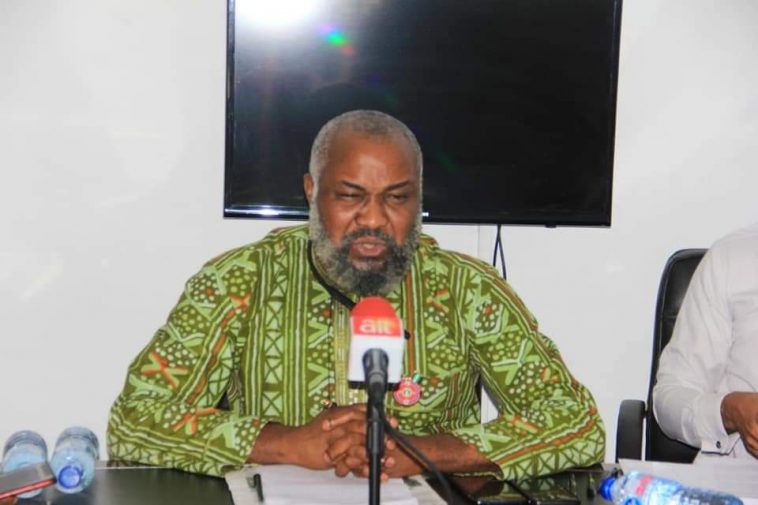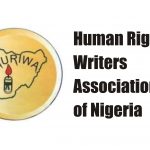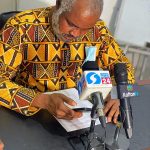By
Emmanuel Onwubiko
Tanko Yakasai, a founding member of the Arewa Consultative Forum has said that the South East needs to do more if the region really desires to take the reins come 2023.
Speaking during an interview on Channels Television’s Newsnight on Monday, the elder statesman was of the opinion that there is something lacking in the way the Southeastern region is treating the quest for the presidency in the next general election.
According to Mr. Yakasai, the missing ingredient in the South East’s drive to lead the country in 2023, is the dearth of constructive engagement with other regions.
“I am a strong supporter of a president from the South after Buhari and also if he can come from the South East no problem; I will support it.
“The quarrel is that this is not something that you just stay at home and think that people will come to your house to dash it to you.
“You have to show interest, you have to be serious, you have to try to convince people that you are really up to the task.
“This is what in my opinion is missing in the South East,” the politician asserted.
In his viewpoint, there is a desire shown by the region as regards getting the presidency but the people are not exerting their position to manifest their desire and to convince other people.
The politician also opined that there is a certain uncertainty in Nigeria about the position of the South East especially because of the region’s handling of Nnamdi Kanu and his ideas.
“There is doubt because this Nnamdi Kanu whom ordinarily would not be a good candidate for the governorship of any of the southeastern states is now claiming the attention and support of prominent people in the South East,” Mr. Yakasai stressed.
According to him, the attention given to Kanu within the region is stirring doubt and causing people to wonder if truly the South East is ready to produce a credible candidate that would serve Nigeria with all his/her heart.
The elder statesman advised that though the card lays now on the desk of the South Easterners, the region must try to reach out to garner support for its goal to be achieved when the polls come around.
But the South East of Nigeria is in no way bereft of leadership just as the South East political tacticians have for a long time been holding consultations at different levels of political, religious, ethnic and religious divides with a view to convincing the rest of the Country to see the justice and equity in working towards producing a president of South East extraction in 2023 which will be the first since independence in 1960.
It is untrue to say that because of Nnamdi Kanu’s influence in the South East, therefore it is impracticable to get a Nigerian of South East extraction that is a patriotic Nigerian. Far from that. Tanko Yakasai’s take on the South East as aforementioned is an incurable fallacy. It is a fallacy of disjointed middle because in the South East of today, there are millions of Igbo speaking Nigerian who will vote NO should a referendum for self determination or self government be conducted today even by the Independent National Electoral Commission or the United Nations.
There are great patriots in South East of Nigeria who believe in Nigeria. However, what a real statesman and patriot won’t support is for any section of the Country to be treated as second class citizens. This tendency is the reason for the agitations in both the South East and South West.
So why didn’t Tanko Yakasai also say that because of Sunday Igboho and his Yoruba Nations agitation, the South West can’t produce a patriotic Nigerian to become President anytime soon?
This fallacy and stereotype being bandied about by Tanko Yakasai suffers from disease of logical coherence.
Back to the issue of Presidency, the Igbo nation has never produced an occupant of the Executive office of the President of the Federal Republic of Nigeria.
Dr. Nnamdi Azikiwe the first post- independence president was not an executive president of the Federal Republic of Nigeria.
To prove to this northern irredentist and leader from the North Tanko Yakasai that Igbo have often dialogued and are constantly in conversations with the rest of the Nigerian society on how to arrive at acceptable module of actualizing equity in 2013, a phenomenal event happened recently.
This phenomenon was the visit to the house of the Senate’s Chief whip and Senator representing Abia North in the senate of Nigeria Senator Orji Uzor Kalu by the national leader of the All Progressives Congress (APC) Asiwaju Ahmed Bola Tinubu the Jagaba of Borgu Kingdom.
For whatever it is worth, the visit by Senator Bola Ahmed Tinubu shows that indeed Igbo political elites do not operate in isolation.
It is incontestable that Orji Uzor Kalu is the highest ranking legislator of Igbo extraction in the Ninth session of the National Assembly. Aside the visit to Orji Uzor Kalu by Senator Bola Ahmed Tinubu the National leader of APC the central ruling political party in Nigeria, Senator Orji Uzor Kalu has had interactions and interfaces in the South East, in the North and in the South South of Nigeria. Many other leaders of South East have done same. Orji Uzor is a holder of prestigious traditional titles in Katsina and Kebbi States.
Above everything else, one thing anyone can not accuse Senator Orji Uzor Kalu of is his love of Nigeria and his patriotic zeal.
He has had several back channel discussions with respected non-state actors all across the Country on how to attain national stability, security peace, harmony and economic advancement.
His role in trying to end the insecurity in the South East of Nigeria is not in doubt since many years.
As far back as 16th of December 2016, Senator Orji Uzor Kalu had played historical and active role to try to negotiate peaceful end to the agitations tearing Nigeria apart from the different sections of Southern Nigeria and primarily from his immediate constituency which is the South East.
On that date aforementioned, Senator Orji Kalu visited the global leader of the now prescribed Indigenous Peoples of Biafra (IPON) Mazi Nnamdi Kanu in Kuje prison. Although IPOB is wrong classified by President Muhammadu Buhari as a terror group, in Europe the organisation is legally registered.
Orji uzor Kalu, who shared photos from the visit on social media, said the Biafra leader does not belong in Kuje prison.
He described Kanu as his “brother” and stated that his freedom was of “utmost concern” to him.
“Today, I visited Mazi Nnamdi Kanu in Kuje Prison and we engaged in a very long discussion. Kanu is my brother and a son of the soil. He shouldn’t be where he is because Kuje Prison is not his home.
“It is therefore my utmost concern to see him regain his freedom like every other Nigerian,” Kalu wrote.
Kanu, in a recent protest of Justice Binta Nyako’s decision to shield witnesses that would testify against him, said Nigeria will collapse when he gives his testimony in court.
“Buhari went on national television to accuse me in public and he wants to try me in secret. I will not allow myself to be subjected to this kind of trial.
“By the time I am through with my testimony there will be no Nigeria. What kind of secret trial? This is not a Sharia Court but common law court,” he had said.
Kanu is facing 11-counts of treason and terrorism brought against him by the federal government.
The Radio Biafra director has been in detention since October 2015 when he was arrested by operatives of the Department of State Services (DSS) in Lagos.
Shortly after the visit, Mazi Nnamdi Kanu got reprieve when he was granted bail.
But in between the bail and his next appearance in Court, there was attempt made against his life and those of his families- biological and IPOB who had gathered in his then traditional ruler’s father’s house in Umuhia, Abia State. The Nigerian military attacked his father’s palace and shot sporadically killing scores of civilians. Nnamdi Kanu managed to escape and in fear for his life, he reportedly went out of Nigeria and the Federal government accused him of being a fugitive from the law.
Around June this year after about four or five years that he narrowly escaped being killed by the rampaging troops of Soldiers who invaded his father’s compound, Nnamdi Kanu was again reportedly kidnapped from Kenya and returned into Nigeria for the continuation of his trial.
The mode of his re-arrest and the stiff conditions under which he is being detained by the department of state Service (DSS) have led to a lot of accusations that government plans to kill him and his millions of supporters are unease. The South East has now become restive with dozens of attacks of individuals and communities by the military in their attempts to crush the support base of the Indigenous Peoples of Biafra (IPOB).
This state sponsored violence against civilians in the South East have led to several deadly clashes resulting in the killing of over 300 civilians by Soldiers as recorded by Amnesty International.
Amnesty International has accused Nigerian security forces of using excessive force and killing at least 115 people during a “repressive campaign” earlier this year against separatist agitators in the country’s restive southeast.
Violence has flared in the southeastern states this year, killing at least 127 police or members of the security services, according to the police. About 20 police stations and election commission offices have been attacked, local media have reported.
The Indigenous People of Biafra (IPOB), an outlawed movement seeking independence for ethnic Igbo of the region, and its armed wing Eastern Security Network (ESN) have been blamed for the violence, but IPOB has denied the charges.
Amnesty said that in response, security forces, including the military, police and the Department of State Services (DSS) intelligence agency have killed dozens of gunmen, as well as civilians, where attacks have taken place.
“The evidence gathered by Amnesty International paints a damning picture of ruthless excessive force by Nigerian security forces in Imo, Anambra and Abia states,” Osai Ojigho, the group’s Nigeria director, was quoted as saying by AFP news agency.
The global rights watchdog said in a Twitter post it had “documented at least 115 persons killed by security forces between January and June 2021”.
“What is needed is an impartial and open inquiry to determine what happened and bring to justice all those suspected of criminal responsibility in fair trials before ordinary civilian courts and without recourse to death penalty,” Amnesty said.
There was no immediate comment by Nigerian authorities.
“I have not seen the statement. So I cannot respond,” national police spokesman Frank Mba told AFP.
On Arbitrary arrests, Amnesty said relatives of the victims told the rights group that they were not part of the armed groups who were attacking security agents.
“Many of the victims were deposited at government hospitals in Imo and Abia state,” it said.
Amnesty said it also documented cases of arbitrary arrest, ill-treatment and torture in the restive region.
It said that in May 2021, the Imo state government announced the arrest of at least 400 people allegedly linked to the violence.
“Amnesty International’s investigation indicates that most of them were randomly picked up in their homes and off the street and had nothing to do with ESN.”
Local and international rights groups have repeatedly accused Nigerian security forces of rights abuses, but they always deny the charges.
Nigeria has recently intensified a crackdown on separatist agitators, including the arrest and trial of their leaders.
Last month(June 2021), IPOB leader and founder Nnamdi Kanu was arrested in Kenya, according to his lawyers, and brought back to Nigeria to face treason charges.
Kanu’s IPOB is attempting to revive the now defunct Republic of Biafra, a declaration of independence which led to a 30-month civil war between 1967 and 1970.
More than one million people, mostly Igbo, were killed in the fighting or by starvation and disease.
In his usual manner of searching for peace and for an end to the needless violence in the South East of Nigeria, Senator Orji Uzor Kalu who does not hide his patriotic love for a United Nigeria, has again began trouble shooting efforts to negotiate a truce and to convince President Muhammadu Buhari to opt for dialogue even as he has made efforts to reach out to IPOB to accept peaceful resolution of issues on the agitations for self-rule.
Chief Whip of the Senate, Senator Orji Uzor Kalu, on Monday, paid a visit to the leader of the Indigenous People of Biafra, Nnamdi Kanu who is in the custody of the Department of State Services.
Kalu who shared on Facebook said he had a discussion with the IPOB leader whom he met in good health and care.
The Senator said he will continue to counsel Kanu just as he had always done in the past, whether he listens or not.
He wrote, “This afternoon, I visited my brother, Maazi Nnamdi Kanu in DSS custody, Abuja. I met him in good health and care and we discussed ‘Umunne’.
“In 2001 when I was Governor, I made his father Eze Israel Okwu Kanu traditional ruler of Akwara Ukwu and since then the family has been very close to me.
“I understand that Nnamdi has an insane amount of people rooting for him back home and I encouraged him to consider the consequences of certain actions and utterances for the sake of the same people.
“Even though my ideology and his ideology are totally different, God has made us brothers and we can’t run away from each other.
“I owe him and Nigerians good counselling…Whether he and his family listen to me or not, I will continue counselling him as I have always done in the past. What we need most is a peaceful and secured society.”
Kanu is being held by the DSS after he was accused of terrorism and treasonable felony.
Orji uzor Kalu deserves commendation for playing the heroic role of a peaceful negotiator. The truth however is that Nigeria must be a nation of Justice, equality and equity for lasting peace to be attained. Saint Augustıne of Hippo, a reputable modern era Philosopher and theologian had written profoundly on the concept of justice and I think Nigerian politician should read closely to understand why justice is necessary to national security and harmony.
Augustine’s chief argument regarding law and justice was that the political state is not autonomous, that in making laws the state does not merely express its power to legislate; the state must also follow the requirements of justice.
Justice is a standard, moreover, which precedes the state and is eternal. What made Augustine’s argument unique was his novel interpretation of the meaning of justice. He accepted the formula that said that “justice is a virtue distributing to everyone his due.” But, he asked, what is “due” to anyone? He rejected the notion that justice is conventional, that it will differ with each society.
For him, justice was to be discovered in the structure of human nature with its relation to God. Hence, he said that justice is “the habit of the soul which imparts to every man the dignity due him.. Its origin proceeds from nature.. and this notion of justice. . is not the product of man’s personal opinion. but something implanted by a certain innate power. To require the state to follow such a Standard was obviously to place heavy moral limitations upon political power.
Indeed, Augustıne argued that if the laws of the state were out of harmony with natural law and justice, they would not have the character of laws, nor would there be a state.
He said, “If then a commonwealth’ be an estate of the people. And that they be no people that are not united in one consent of the law: nor is that a law which is not grounded in justice; then it must follow, where no justice is, there no commonwealth is”. (History of philosophy, edited by Samuel Enoch Stumpf).
* EMMANUEL ONWUBIKO is head of the HUMAN RIGHTS WRITERS ASSOCIATION OF NIGERIA (HURIWA) and one time National commissioner of the NATIONAL HUMAN RIGHTS COMMISSION OF NIGERIA.






